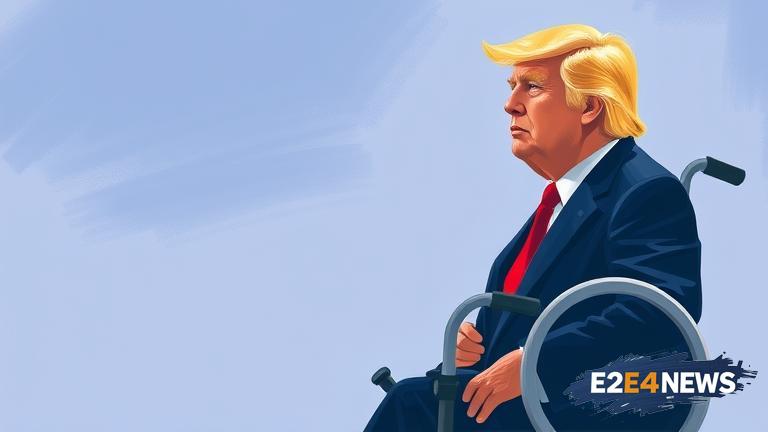The Trump administration’s latest tariffs have raised concerns over the increasing costs of hearing aids and mobility devices, which could have a significant impact on the lives of millions of Americans. The tariffs, which were imposed on a range of goods including medical devices, have led to a surge in prices of these essential devices. Hearing aids, which are already a significant expense for many people, have seen a notable increase in price, making them even more unaffordable for those who need them. Mobility devices, such as wheelchairs and scooters, have also been affected, with prices rising by as much as 25%. The tariffs have been imposed on goods imported from China, which is a major supplier of these devices. The move has been criticized by many, who argue that it will disproportionately affect vulnerable populations, such as the elderly and people with disabilities. The cost of hearing aids can range from a few hundred to several thousand dollars, and the tariffs will only add to this expense. Many people rely on these devices to communicate and navigate their daily lives, and the increased cost could be a significant burden. The tariffs have also raised concerns about the impact on the healthcare system, with many providers and manufacturers warning of potential shortages and delays. The Trump administration has argued that the tariffs are necessary to protect American industries and jobs, but many experts disagree, arguing that they will only serve to harm consumers and the economy. The tariffs have also sparked a wider debate about the impact of trade policies on healthcare and the need for more affordable and accessible medical devices. As the situation continues to unfold, many are calling for a rethink of the tariffs and a more nuanced approach to trade policy. The issue has also highlighted the need for greater investment in healthcare and medical research, to develop more affordable and effective treatments for a range of conditions. The impact of the tariffs will be felt across the country, with many communities and individuals affected. The tariffs have also raised concerns about the potential for price gouging and exploitation by manufacturers and suppliers. Many are calling for greater transparency and accountability in the pricing of medical devices, to ensure that consumers are not being taken advantage of. The situation has also sparked a wider debate about the role of government in regulating the healthcare industry and protecting consumers. As the debate continues, many are hoping for a resolution that will prioritize the needs of patients and consumers, rather than the interests of manufacturers and suppliers. The tariffs have also highlighted the need for greater international cooperation and agreement on trade policies, to avoid the kind of disputes and tensions that can harm consumers and the economy. The issue has also raised concerns about the potential for retaliation and escalation, which could have far-reaching consequences for global trade and the economy. The Trump administration’s tariffs have sparked a major controversy, with many arguing that they will only serve to harm consumers and the economy. The situation is complex and multifaceted, with many different factors and interests at play. As the situation continues to unfold, many are calling for a more nuanced and thoughtful approach to trade policy, one that prioritizes the needs of patients and consumers, rather than the interests of manufacturers and suppliers.
